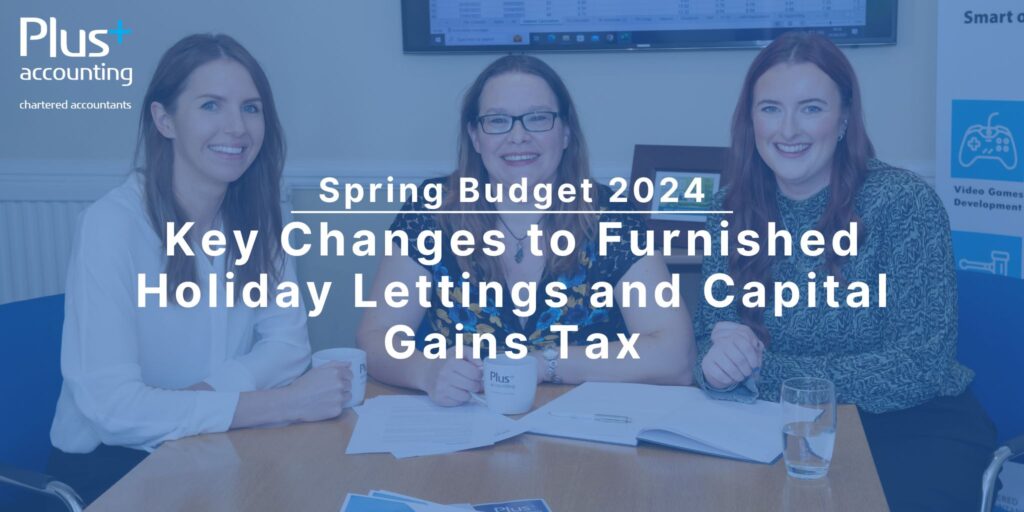The 2024 Spring Budget introduced several changes, and among them were notable adjustments affecting Furnished Holiday Lettings (FHL) and Capital Gains Tax (CGT). In this blog, we’ll explore these changes and provide insights into what they mean for property owners engaged in the holiday lettings sector.
Furnished Holiday Lettings (FHL) Changes
In a bid to create a more equitable property market for tenants, the Furnished Holiday Lettings (FHL) regime is set to be discontinued starting April 2025. This move aims to boost long-term rental opportunities for local residents and generate additional tax revenue. The abolishment is anticipated to yield approximately £300 million from landlords who previously benefited from the FHL scheme.
Tax Implications:
Properties that met the criteria for FHL were subject to special tax rules, providing owners with specific advantages. These included entitlement to plant and machinery allowances on certain items, capital gains tax reliefs for traders, and fewer finance and interest restrictions on loans and mortgages related to FHL properties.
Impact on Property Owners:
Property owners who have let their properties for holiday rental income and benefited from the FHL regime will be significantly affected. This includes individuals owning single holiday homes as well as those letting properties through platforms like Airbnb. The government argues that these changes will create a fairer system, addressing housing strain in key areas.
Transition Period:
The changes will be implemented from April 2025, providing property owners with a transition period to adjust their strategies. During this time, it’s crucial for affected landlords to assess the implications for their specific situations, considering potential tax implications and the overall impact on their property portfolios.
Capital Gains Tax (CGT) Changes
From April 2024, the higher rate of CGT on residential property will witness a reduction from 28% to 24%. The Chancellor has framed this move as a means to invigorate the housing market by encouraging more residential property disposals. This change is part of a broader strategy to create a more dynamic property market and generate additional tax revenue.
The recent changes announced in the Spring Budget concerning Furnished Holiday Lettings and Capital Gains Tax underscore the significance of staying informed about evolving tax regulations. For property owners, staying updated on these changes, comprehending their implications, and seeking expert advice will be crucial for navigating the dynamic landscape of property taxation.
Author: Louise Berry, Tax Manager
Any views or opinions represented in this blog are personal, belong solely to the blog owner, and do not represent those of Plus Accounting. All content provided on this blog is for informational purposes only. The owner of this blog makes no representations as to the accuracy or completeness of any information on this site or found by following any link on this site. Please note that AI has been utilised in generating content for this blog.
Date published: 12 March 2024



